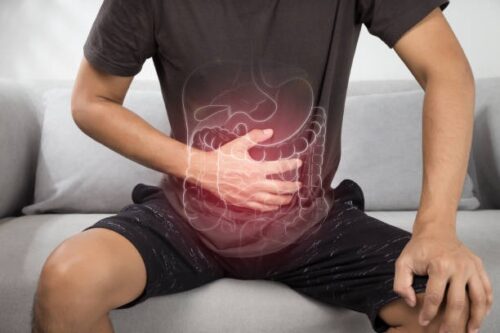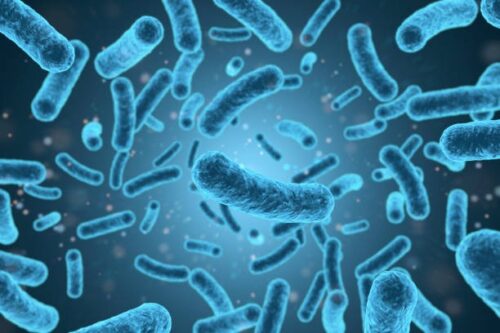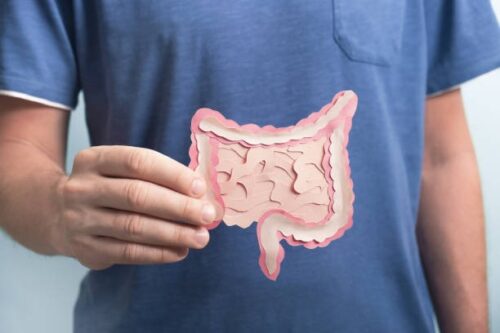One or two effortlessly released stools daily indicate healthy bowel movements or bowel activity. The feces are similar in consistency to mashed potatoes or peanut butter. If this is not the case, there can be an issue with your digestive system. Don’t worry, as this is only sometimes the typical case for determining whether or not you have any issues with your stools. If you do, and you are familiar with the situation and can detect that something is wrong with your poop, you might want to check it out more if you’re dealing with a difficulty passing stool.

Source: pixabay.com
With that, some people, mostly adults, may choose to treat their symptoms on their own by using over-the-counter drugs, or they might be sent to a colorectal surgeon or gastroenterologist. However, because they specialize in assessing the muscles in the abdomen and pelvis that affect bowel motions, pelvic physical therapists are invaluable in treating bowel problems. A pelvic physical therapy professional will assess the lifestyle variables and habits that affect gut health. They may frequently advise their patients on a few easy lifestyle changes to help them improve their intestinal health.
Most of us can maintain regularity with a few simple modifications in lifestyle. If you experience an irritable bowel movement often, consider trying these things:
Go To The Bathroom At A Regular Time Every Day
When you’re occupied with your everyday activities, have you ever waited for the extreme urge to use the restroom, only to discover that it never comes? You used to sense when it was time to sit on the toilet, but external factors like struggling to use public restrooms or time restrictions kept you from noticing these cues. This may eventually cause you to lose the urge or feeling to use the restroom when necessary.
On the other hand, have you ever had the impression that bathroom trips take too long or that you have to visit the restroom frequently to try to pass one? Do you push and struggle but get very little stool out of it?
Either way, you might gain from developing more consistent and regular bowel habits if you go to the restroom and use the toilet regularly every day. This entails figuring out when is the ideal time to release poop. Not only does this provide you with better time management, but it will also allow your brain to set a schedule and when to know your body. It can be up to thirty to an hour after consuming meals. At this point, the gastrointestinal tract is stimulated to contract and force the bowels to move more quickly.
Don’t Strain And Learn To Breathe
When you are constipated or having bowel movement issues, your natural tendency is to strain or push it forcibly. However, straining can cause the muscles surrounding your anus to contract or squeeze your way through, making it difficult to release the stool even more. It may require some abdominal pressure to have a bowel movement. This is similar to exerting maximum pressure on a toothpaste tube while maintaining the cap closed. Alternatively, some find it useful to inhale through their mouths like they are inflating a balloon and exhale through their belly.
Using deep breaths as a strategy, you can sit and maintain your pelvic floor muscles’ relaxed state while your abdomen gently presses downward, placing your knees and feet in a comfortable position to help release the stool. It may be necessary to seek further instruction or practice, in which case a pelvic health care physical therapist’s assessment can greatly help.

Source: pixabay.com
Eat More Fiber
All plant-based foods contain fiber, including fruits, vegetables, whole grains, legumes, nuts, and seeds. Eat lots of fruit and vegetables daily, and choose wholegrain, pasta, and oats. Note that consuming too much fiber can bring up too much air or an enlarged stomach if you abruptly increase your fiber intake. Thus, drink plenty of water and other liquids, including coffee. Drinking will help compensate for this issue. Because thick feces are simpler to get out, constipation is less likely to occur. And because fiber absorbs fluids and gives stool volume, it may assist in stabilizing loose stools, and watery stools and keep the bowels healthy.
Following a regular dietary schedule and consuming adequate fiber helps regular bowel movements because ingesting fiber regulates the digestive tract from beginning to end. Additionally, fiber has the cleaning effect of scrubbing away pathogens and other bacteria in your intestines, which lowers your chance of colon cancer.
Fiber impacts how quickly food is absorbed, how waste products (stool) move through the colon, and how quickly food is digested. Beneficial gut bacteria can find something to grow on there as well. Both insoluble and soluble forms of dietary fiber are present and serve distinct physiological purposes. Thus, the digestive system needs fiber to function properly.
Exercise Regularly
Constipation can result from a lack of physical activity since it slows down the feces’ normal movement through the colon. Exercise is beneficial for maintaining regularity and its many other benefits. It can be helpful to keep things in the digestive tract moving with a vigorous stroll, swimming, or even some gardening. Make an effort to engage in enjoyable physical activity for a minimum of thirty minutes daily to alleviate constipation and enhance gastrointestinal motility. Also, try doing exercises that strengthen your core.
Food moves through the main gastrointestinal tract or large intestine more quickly after exercise, which helps relieve constipation. Your body’s ability to absorb water or liquid from the feces is thus reduced since it is more difficult to soften stool or eliminate dry, hard stools. Also, respiration and heart rate increase with aerobic exercise. This supports the activation of your intestines’ normal muscle contraction.
Regular physical activity can help ease the symptoms of constipation more quickly. Researchers say exercise has other benefits beyond only strengthening the cardiovascular system and other muscles. For regular bowel motions, exercise is necessary. Intestinal incontinence contractions, which drive stool through the gastrointestinal tract, are triggered, and your abdominal muscles may get firmer. Also, stress is a common cause of constipation, so it might aid in reducing that.
Listen To Your Body
Sometimes, when you are busy or in a foreign environment, you put off using the restroom. This may make constipation worse. It’s crucial to take a poo whenever the need strikes or to schedule one regularly.
Additionally, you must be careful to use the restroom when you truly need to since delaying it might harm your colon and cause your biological clock to fall out of sync. Be sure to give yourself sufficient time to decompress and let go when your body signals that it is time to release the digested food in your body. Of course, there will be moments when you must suppress the urge to use the restroom for various reasons. However, if using the restroom is always convenient, use it to finish your business.
Pooping at least three times each day or three times a week is considered normal. The frequency of your bowel movements can be affected by various things, such as your stress levels, water consumption, and processed foods. To prevent constipation or health issues, it’s critical to identify the warning signs and symptoms if anything seems out of the ordinary for you. Seeing a physician examine the warning flags and physical manifestations would be quite beneficial.

Source: pixabay.com
Don’t Rely On Drugs
For whatever reason, a lot of individuals turn to medications along with additional substances to assist in relieving their problems with bowel movements. However, you should not. The normal course of your body’s waste elimination processes causes bowel movement. Therefore, you can defecate without the need for any drugs or other substances. It is part of your body’s function to expel waste and remove digested food.
If other medications aren’t helping and your constipation is particularly bad, you can try stimulants. They squeeze on your intestines to stimulate motility. However, laxatives are used by the majority of individuals. These are a variety of drugs that facilitate the movement of waste products through the colon. Bulk-forming stimulant laxatives and fiber supplements are examples of over-the-counter alternatives. These give the soft stool greater mass and aid in its ability to hold onto water that you drink, which makes it mushy but more formed.
Prescription medications that reduce intestinal motility, including codeine or hydrocodone, should always be avoided. Antibiotics and antidepressants can also bring on numerous gastrointestinal disturbances. Thus, it would help if you also exercised caution with that. Never be afraid to ask a healthcare professional about the negative consequences if your doctor recommends an anxiety or depression medication treatment that interferes with your bowel movement. Other drugs may be suggested or prescribed by the therapist in place, so always talk about your condition honestly.
Avoid Stress
There are various ways that stress might cause irritable bowel movements, and you can refer to the bristol stool chart for the ones you might currently have. Stress hormones have an immediate impact on bowel motions by altering physiological functions. Constipation may result from a slowdown in intestinal motility brought on by stress. Depression and anxiety may act as catalysts for various gastrointestinal diseases, including gas, diarrhea, constipation, and pain, and affect a person. More and more, this stress-related problem is being identified as an irritable bowel and irritable brain syndrome.
IBM can also result from poor diet, dehydration, and insufficient exercise, all of which are increased in stressed-out individuals. Additionally, stress causes blood flow to divert from the colon, which can result in diarrhea. Your body responds to stress by diverting blood flow to muscle tissue. This causes problems with releasing cortisol and adrenaline and difficulties with food digestion and absorption once you’re done eating. Your digestive system becomes sluggish and struggles to function correctly when this occurs.
Avoid stress, or at the very least, learn how to manage it. It is possible to successfully handle stress. To get an initial diagnostic of your physical and mental health conditions, however, see your therapist before attempting any new meta analysis systematic review treatments.
Frequently Asked Questions (FAQs)
How do you maintain bowel movements?
How can I promote my healthy bowels?
How do I get my bowels back to normal?
How can I naturally keep my bowels regular?
How often should you have a bowel movement?
What is the best way to ease constipation?
How can I have a bowel movement every morning?
How can I improve my gut health naturally?
Why is it essential to keep bowels healthy?
Can you change your bowel movement schedule?
Is daily bowel movement healthy?
How long is a healthy bowel movement?
Is it okay to have a bowel movement every day?
What is the best supplement for regular bowel movements?
How do you stimulate a bowel movement quickly?































